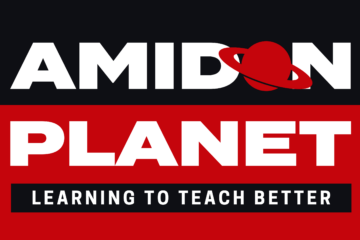Four Books to Inspire the Math Hero in You: Celebrating the 100th Episode Of the Math Ed Podcast
100 is a big deal
In kindergarten they celebrate the 100th day of school like Christmas. It is a big deal to get to that third digit. Same goes for Dr. Sam Otten (@ottensam) releasing 100 episodes of the Math Ed Podcast. It is a big deal.
The Math Ed Podcast has been a favorite resource for me to hear leaders and legends in mathematics education talk about the articles they have written, the projects they designed, and the careers they constructed. Almost as interesting is hearing about the doctoral studies of the guests, which frequently featured University of Wisconsin – Madison alumni (On Wisconsin!). I don’t know why, but it is comforting to picture math ed rock stars like Megan Franke or Jeremy Kilpatrick as doctoral students, figuring out what their dissertation topic will be.
Another interesting feature of the podcast is to hear what the guest would be doing if they were not in math education. This question led to Mandy Jansen (@MandyMathEd) voicing her wish to be a pop star and Tom Carpenter expressing his desire to be a point guard for the Golden State Warriors.
A Celebration of 100
In honor of the 100th edition of the Math Ed Podcast, Sam wanted to do something a little different. He called for people to submit a 1-4 minute audio recording where people share a piece of math education scholarship (book, article, etc.) that has inspired them. Each recording needed to be accompanied by a reference of the resource and an introduction of the one sharing the resource. Sam compiled and shared these submissions as part of his 100th episode.
Sources of Inspiration during my Math Ed Journey
It is hard to count how many times I have been inspired and educated by listening to the Math Ed Podcast. At a minimum, I can submit something to be considered for the 100th episode…but what to submit. When I heard Sam’s request, four readings immediately popped in my head. Below I describe each and how they inspired me during my math ed journey in hopes they inspire the math hero in you.
Teaching Problems and the Problems of Teaching by Magdalene Lampert

The book documents the teaching of Magdalene Lampert, as she used her elementary classroom as a lab to figure out how to use rich tasks to teach mathematics. The book provides a first person account of her teaching where you get inside of Dr. Lampert’s head as she directs a whole class discussion. She describes the moves she makes, why she makes them, and the internal doubts she has while making the move. Similar “inside the head talk” happens when she talks about setting up the physical space of the classroom, establishing routines, and choosing problems for the next class. This book is incredible. I recommend this book for anyone who wants to advance their teaching, or their thinking about teaching. She describes the “why” of her teaching so that it is applicable to the most novice of teachers and to the most veteran of researchers.
Radical Equations: Civil Rights from Mississippi to the Algebra Project by Robert Moses & Charles Cobb

Teaching and Learning Mathematics for Social Justice in an Urban Latino School by Eric “Rico” Gutstein
Up until I read this Journal for Research in Mathematics Education article I was pretty sure I was going to quit my doctoral program. We were reading a lot of theoretical research articles and it was difficult to understand anything. I could not see myself doing anything like what I was reading nor connect what I was reading to my work as a mathematics teacher. It was like every assigned reading was another voice saying “You don’t belong here.”
That feeling left after I read Gutstein’s article. In the article, Rico describes teaching mathematics for social justice and what it looked like through studying his own teaching. It was like he took what Bob Moses was talking about in Radical Equations to the next level. Also, he used his classroom to figure out what this thing called ‘teaching mathematics for social justice’ looks like in practice. This paralleled how I used my own classroom as a place of constant tinkering to enhance the learning of my students.
The Long Haul: An Autobiography by Myles Horton with Judith Kohl & Herbert Kohl

That is my list. I’ll pick one of these to submit to Sam (ottensa at missouri.edu) by October 10, 2017. I am thankful for the Math Ed Podcast and I look forward to the next 100 episodes.
What piece of Math Ed scholarship is a must read for you?
Photo by Skye Studios on Unsplash
